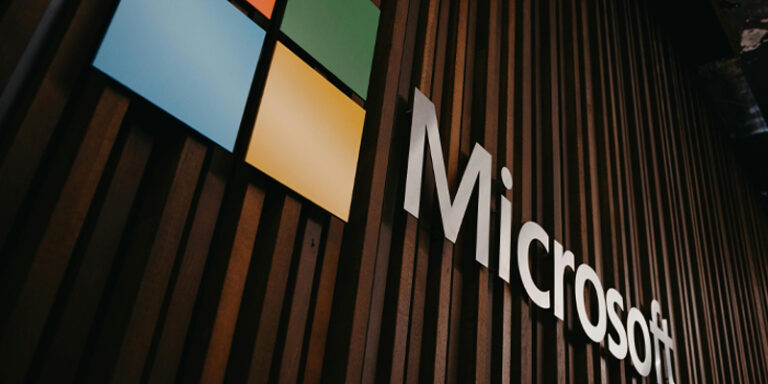Tech companies, once again, are trying to do publishing.

Two technology behemoths recently announced that they’re moving into print, and while headlines about a company pivoting to print is a refreshing change of pace, forgive me if I don’t hold my breath. More books are always good in theory, but I can’t help but think that I’ve seen this movie before.
The biggest news is that Microsoft announced a new imprint called 8080 Books, named after a famous computer chip, which will publish books on science, tech, and business, and will be distributed by Ingram.
8080’s first offering is coming from inside the building: Microsoft’s Deputy Chief Technology Officer Sam Shillace wrote a book called No Prize for Pessimism, about business and the computers that do business. Shillace is the guy who co-invented Google Docs, which is a product I use often, though I don’t love the little AI dongle that’s recently gargoyled itself to the toolbar. I never like an uninvited sword of Damocles in my place of work.
On their website, 8080’s leaders—Microsoft Vice President of Communications Strategy Steve Clayton and Microsoft Senior Director of CEO Communications Greg Shaw—ask themselves “Why a book imprint?” and after a lot of throat-clearing and TED Talk-ese about how books are neat and how they “offer human intimacy at scale” (I guess like if you could send a platonic hug to all of your LinkedIn contacts with the push of a button) they say:
We aim to bring forward great content. But we also seek to accelerate the publishing process, shortening the lag between the final manuscript and the book’s arrival in the marketplace. We seek to hasten the diffusion of knowledge. We are impatient and time sensitive. Technology has quickened the pace of almost every industry except publishing.
A couple things here:
– “Content” is always a big red flag for me. I understand it’s a useful catch-all term, but it makes me think, uncharitably, that you see diapers and Didion as the same thing: just objects floating out there in Adam Smith’s big beautiful marketplace.
– Speeding up the process of printing and shipping would be a big feat! Maybe they can turn one of those power plants into a domestic printing operation?
– “Technology has quickened the pace of almost every industry except publishing”? Citation needed.
All this is to say, there are a lot of big swings in that paragraph, and we wish them luck!
The more promising endeavor to my eye is that last month ByteDance, another big ones-and-zeros business that owns TikTok, announced they’re taking their publishing operation into print. The company’s imprint 8th Note Press has been publishing ebooks and audiobooks for about a year now, but is linking up with Zando to get print editions in stores starting early next year.
“Physical books are still overwhelmingly the most popular format, and certainly in specific genres, some of which we’re playing in, they’re still super important,” 8th Note’s Jacob Bronstein, head of editorial and marketing, told The New York Times. “So we knew that we needed to be in physical books.”
8th Note’s model is to work backward from the trends they’re seeing on TikTok and make editorial decisions anticipating the conversations on their platform. And as such, their initial list of titles coming to print reflects the sort of thing you’ll see rocketing around BookTok.
I’m always wary of a business pitch that claims to be able to create hits, but Lord knows what’s possible when you algorithmically and vertically integrate like this.
If you’re getting a feeling of deja vu hearing the question of whether technology will transform publishing again, you’re not alone. But hey, at very least it’ll make for a great topic to fight with your crypto-booster cousin about this Thanksgiving!